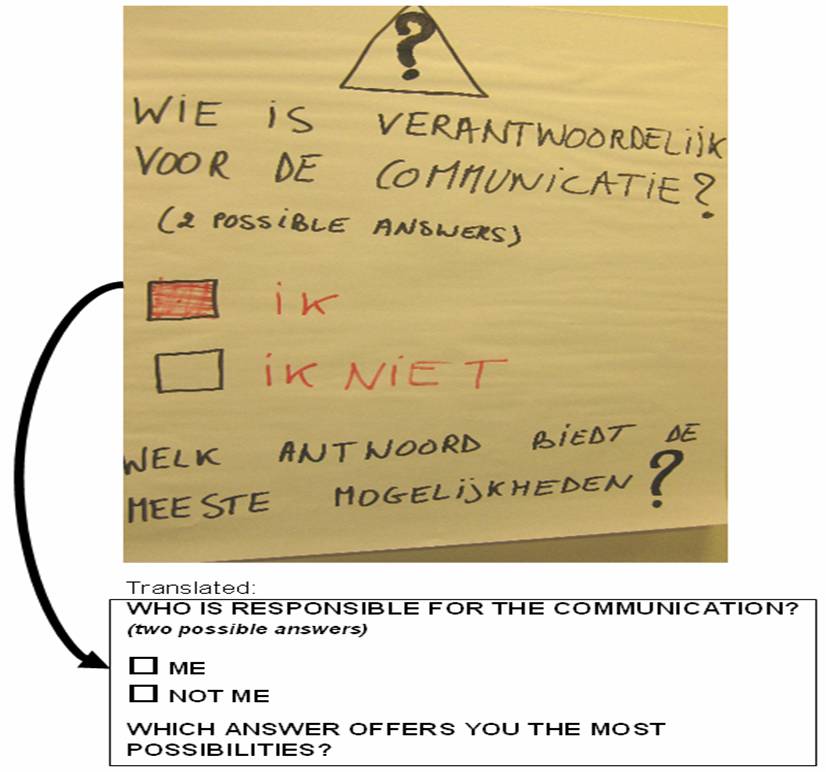If you want to know who is responsible for communication, have a closer look at the meaning of ‘responsibility’.
In a recent workshop I was asked:
Shouldn’t the receiver of a communication be responsible for it? We can prepare all we can, but if they don’t want to swallow it – it’s their problem!
However true, rightful and justified this attitude may seem, to the same extent it will not help you any further on an organizational change program.
To ‘Me’ or not to ‘Me’
The only way to bring about change in a setting that is characterized by inertia or plain and simple “let-me-tell-you-why-this-won’t-work“-ism is by being the change you want to see in the world. Over and over again. Even when it seems hopeless. So I put the following scheme on the board (in Dutch – but I have put a translation below) (*).

The point here is that responsibility is a choice, not something that happens to you. Everything becomes clear when we study the English definition for “responsible”: It literally means “able to respond” or “being capable of responding.” When people choose to take responsibility in a situation, they co-own it. This insight is fundamental for organizational change management.
Want more possibilities? Yes you can…
… but it takes a radical (i.e. non-rational) approach! Knowing that one cannot assign responsibility to someone else, there is a practice that can strengthen you at no-one’s expense. It all starts with the radical declaration: “I am the framework for everything that happens in my life“.
Then, you take the practice one step further: You ask yourself in regard to the unwanted circumstances: ‘well, how is it that I have become a context for that to occur?’. You will begin to see the obvious and less obvious contributions of your past actions and thoughts. That is because when you look deeply enough into that question you will find that at some point you have sacrificed a relationship.
In their book ‘The Art of Possibility: Transforming Professional and Personal Life’ Ben and Ros Zander introduce this very practice and the call it ‘Being the Board’. Being the board is not about turning the blame on yourself, instead it is about access to possibility.
So next time you are tempted to say: “They just won’t listen”, ask yourself: “well, how is it that I have become a context for that to occur?” And always remember rule number 6!
Related articles on this blog:
_____________
(*) I borrowed this scheme from Clint Callahan – to whom I owe quite some insights in this domain.


